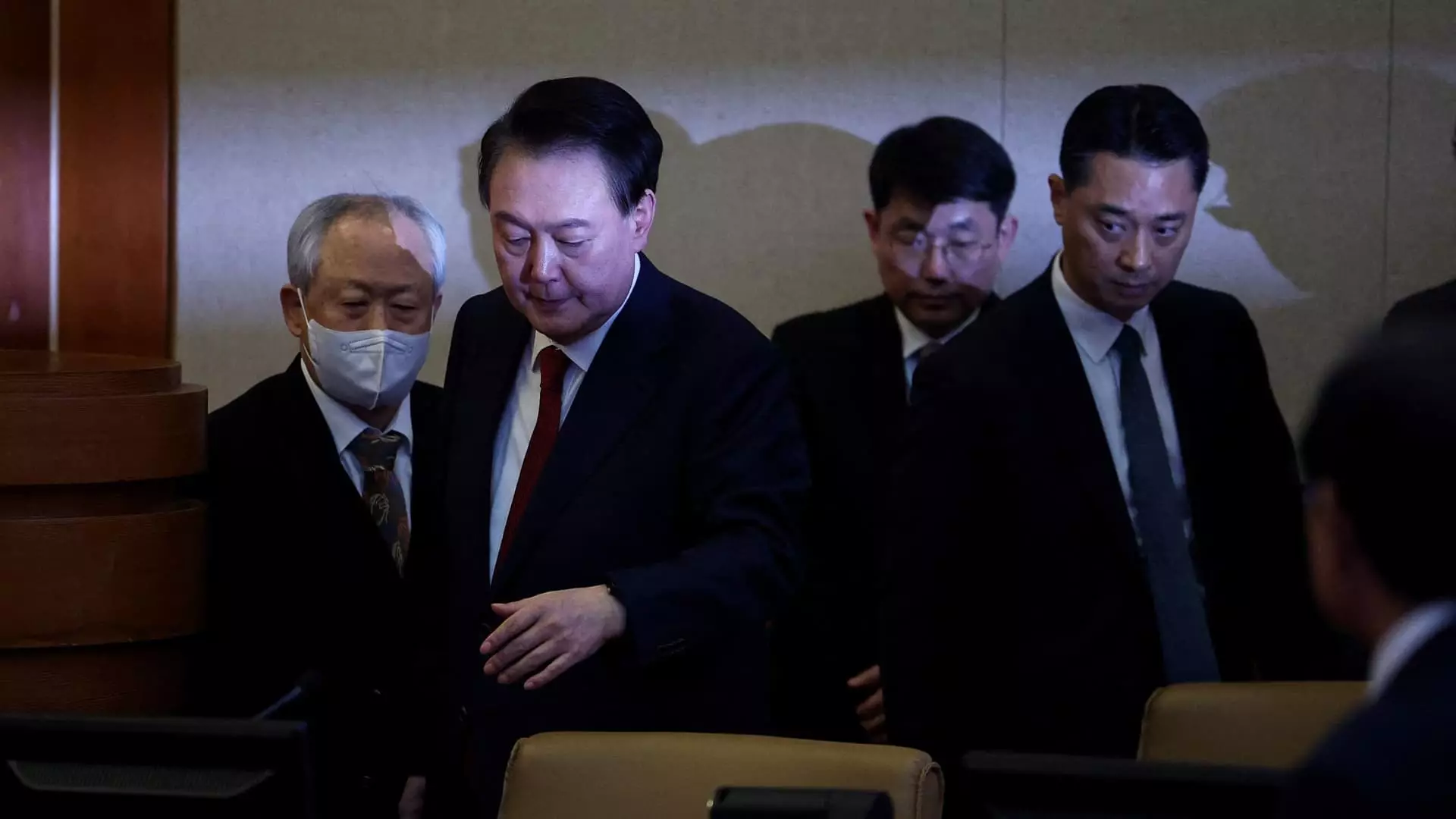The recent impeachment of South Korea’s President Yoon Suk Yeol marks a significant turning point in the nation’s democratic ethos. This event didn’t just signal the end of Yoon’s presidency; it highlights a crucial moment where power, once seemingly absolute, has been starkly challenged. The Constitutional Court’s decision to uphold his impeachment was not merely an administrative action; it resonated as a resounding message that no leader is above the law—even amid contentious political climates.
Martial Law and Its Consequences
The crux of Yoon’s downfall revolved around his controversial declaration of martial law in response to perceived threats from “North Korean communist forces.” This late-night broadcast could have been a strategy to rally nationalistic support, but instead, it spiraled into a profound miscalculation. The Court’s unanimous ruling emphasized that the declaration lacked the legal backing necessary to substantiate a national crisis, reflecting a dangerous overreach of executive power that was neither warranted nor justified. This incident is a stark reminder of the perils of political leaders mistaking their authority for absolute power, risking the very fabric of democratic institutions.
The Ripple Effects on Governance
Following the court’s decision, South Korea enters a precarious period where a leadership vacuum may give rise to instability. Prime Minister Han Duck-soo, now reinstated as acting president, finds himself in a charged environment. The situation demands not only immediate governance during the electoral transition but also a reaffirmation of trust in South Korean democracy. The temporary leadership must navigate the treacherous waters of public discontent that was ignited by Yoon’s actions. Stabilizing an already volatile political atmosphere will be a Herculean task, requiring a delicate balancing act between assertive policy-making and maintaining public trust.
Market Reactions: Investors Take Notice
Economic indicators reacted swiftly to the political turmoil, showcasing the interconnectedness of governance and market sentiment. The slight decline of the Kospi, juxtaposed with a rise in the Kosdaq, paints a picture of cautious optimism among some sectors of the economy. The South Korean won’s strengthening further illustrates that not all market players are deterred by the political chaos. Investors seem to differentiate between cyclical political crises and long-term economic fundamentals, highlighting a potential chasm between political stability and economic performance.
The Dawn of New Political Challenges
As South Korea gears up for a presidential election, the need for competent leadership becomes paramount. The downfall of one president has unearthed a myriad of questions about political accountability and the safeguards needed to prevent such abuse of power in the future. The upcoming elections present an opportunity for South Korea not only to choose a new leader but also to affirm its commitment to democratic principles that prioritize transparency, accountability, and the will of the people. This moment could either be a setback or a stepping stone toward a more robust democratic framework, depending on how the political landscape evolves in the coming weeks.



Leave a Reply